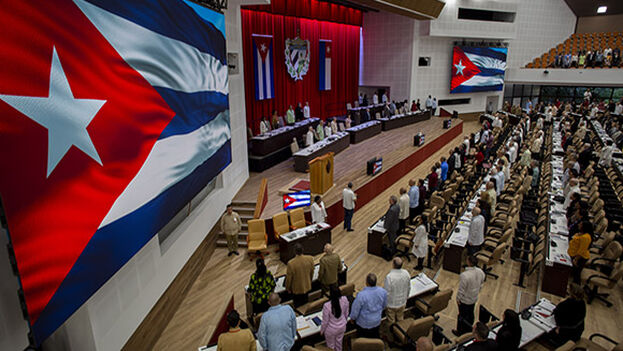
![]() EFE/14ymedio, Havana, 13 December 2022 — On Monday the Cuban National Assembly of People’s Power agreed to put back the debate and final approval of the controversial Social Communication Law, an action which postpones for now the idea of illegality of non-state media.
EFE/14ymedio, Havana, 13 December 2022 — On Monday the Cuban National Assembly of People’s Power agreed to put back the debate and final approval of the controversial Social Communication Law, an action which postpones for now the idea of illegality of non-state media.
The Parliament’s president Esteban Lazo explained that the Council of State requested a delay to its approval of the law on account of its “complexity” and the changes to which it had recently been subject — changes which had not yet been completely transferred over to the deputies.
Lazo confirmed that this “important” regulation, which, if approved would be the first of its kind in the country, can be debated in February or March 2023, once a larger number of specialists and citizens have offered their opinions.
The draft Social Communication Law affirms that the national media “are of socialist ownership” and that “they cannot be an object of any other type of ownership”, a statement which would lead to the illegality of independent digital media.
The law, which in its latest version contains 101 articles, prohibits content which would “propagandise in favour of war, a hostile foreign state, terrorism, violence and the justification for hatred between Cubans, with the objective of destabilising the socialist state of law”.
It also points out that the country’s system of social communication has the purpose of “promoting a consensus and national unity about the Homeland, the Revolution and the Cuban Communist Party.”
The teams that make up the independent media in Cuba — generally critical of the regime — have been decreasing in size in recent years owing to pressure from State Security. Apart from exceptions such as 14ymedio and La Hora de Cuba, they tend to be based outside of the Island, mostly in Miami or Madrid.
The new Penal Code, which came into effect on 1 December, threatens with up to three years imprisonment anyone who “spreads false information” with an intent to “disturb the peace or damage the prestige or credit of the Cuban State”.
The Assembly’s schedule of work had intended to include discussion on six new laws — among them, one concerning Social Communication — inside an overall plan to adapt national legislation to the new developments introduced by the 2019 Constitution.
Translated by Ricardo Recluso
____________
COLLABORATE WITH OUR WORK: The 14ymedio team is committed to practicing serious journalism that reflects Cuba’s reality in all its depth. Thank you for joining us on this long journey. We invite you to continue supporting us by becoming a member of 14ymedio now. Together we can continue transforming journalism in Cuba.
